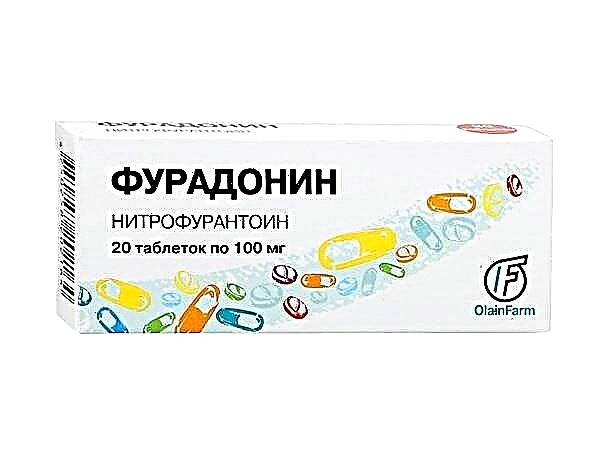
IVF, or in vitro fertilization, has been used in the world for over 40 years. For many couples, this is the only way to finally become parents. IVF can help even in the most seemingly hopeless cases.
According to this technique, the female egg is removed from the body and artificially fertilized, and after the first cycles of division it returns to the uterine cavity for natural gestation.
Despite the fact that over the past 20 years the percentage of successful IVF has increased threefold, no one guarantees the success of the procedure. Pregnancy after the first procedure is diagnosed on average in 30-50% of cases, and this percentage is significantly reduced if a woman has any diseases.
Do not give up in case of failure. It is believed that the chances of a successful conception increase during the first four IVF cycles, from cycle to cycle. But this does not mean that further attempts are absolutely useless - any reproductive specialist will remember cases when his patients managed to conceive a baby after the fifth or even tenth attempt.

What determines success with IVF?
Decades of practical experience have not made it possible to compile a complete list of factors that affect the effectiveness of artificial insemination. However, some of these conditions are known and can be adjusted to improve the chances of success:
- quality of female eggs and male sperm;
- the thickness of the endometrium of the uterus;
- the general health of the parents;
- the clinic in which the procedure is planned.
Undoubtedly, the priority is the condition of the female and male germ cells. Therefore, at the first stage of the IVF procedure, stimulation, it is important to take care of improving the quality of the eggs.

Egg cells begin to form in the female body 9 weeks after conception. The body of newborn girls contains up to 2 million follicles with immature eggs enclosed in them; by the beginning of puberty, their number decreases to 300 thousand. From the first menstruation to menopause, on average, a woman experiences about 400 menstrual cycles. That is, approximately the same number of eggs will mature. Some of them will get a chance to create a new life.
What affects the quality of the eggs?
The production of eggs in the female body continues at 30 and 40 years, but their quality deteriorates with age, which makes it more difficult to conceive, and the risk of developing defects in a child also increases.
According to statistics, women under 35 have a 60% chance of getting pregnant after IVF on the first attempt. After 35 years, this indicator begins to decline - the sex cells accumulate internal defects and reduce the ability to produce energy (which is important at the stage of ovulation). Because of this, the division of a fertilized egg may be disrupted or the development of an already formed embryo may stop.
In addition to the age factor, the quality of the eggs is influenced by:
- chronic diseases
- poor ecology in the place of permanent residence
- chronic stress
- Unhealthy Lifestyle
- frequent x-ray exposure in childhood
- disorders of hormonal levels and thyroid function.

How to improve the quality of eggs before IVF?
It takes about three months for an egg to mature, at which time it is especially vulnerable to toxins and very sensitive to nutritional deficiencies. Any violation reduces the chances of a healthy embryo forming. Therefore, it is better to start taking care of the health of germ cells as soon as a decision is made about the IVF procedure.
At the stage of ovulation stimulation, it is recommended to adhere to proper nutrition, remove fried and spicy foods, pickles, legumes from the diet, with a tendency to be overweight - sweet and starchy foods. From physical activity, you need to leave sparing types of walking or yoga, temporarily abandon the sauna and bath, and also avoid hypothermia. For the prevention of the symptom of hyperstimulation, an enhanced drinking regimen is recommended - up to 3 liters per day of still water or fruit drink without added sugar. It is clear that one should forget about cigarettes and alcohol during this period.
To stimulate the maturation of several follicles at once, injections and certain medications are prescribed. An effective way to increase the quantity and quality of eggs is to include such products as "Pregnoton" and "Synergin" in the complex preparation.
As shown by clinical studies, "Pregnoton" helps to increase the number of mature eggs by 37%, obtained embryos - three times (8), and to reduce the dose of hormonal drugs to stimulate ovulation. The composition of "Pregnoton" includes the daily rate of vitamins and minerals necessary during the maturation of the egg:
- Folic acid, or vitamin B9. It is considered a "female vitamin", normalizes the process of maturation of eggs, improves their quality and the functioning of the reproductive system as a whole. Influences the absorption of other B vitamins (1).
- L-arginine. Increases the response of the ovaries and endometrium, is actively used in the treatment of infertility.
- Vitamin B2 (riboflavin). Affects energy metabolism and fertility (2).
- Vitamin C. Increases the likelihood of pregnancy, has anti-inflammatory properties. (3)
- Vitamin E. Refers to fat-soluble vitamins, as an antioxidant protects eggs from free radical damage. Helps to maintain vitamin C in the body, improves tissue oxygenation.
- Iodine. Essential for the proper functioning of the thyroid gland. It prevents the formation of ovarian cysts, corpus luteum hypotrophy. Improves oocyte fertility by an average of 20%. (4).
- Selenium. Like vitamin E, it prevents damage to oocytes, improves their maturation. (five)

Synergin is a powerful complex of six antioxidants that protect the egg from harmful environmental factors. In addition to the already mentioned vitamins C and E, this preparation contains two components important for the proper maturation of the egg:
- Ubiquinone (Coenzyme Q10) participates in the production of intracellular energy. It has been proven that the saturation of the follicular fluid with coenzyme Q10 promotes the maturation of the egg (6).
- Beta carotene has not only an antioxidant effect, but also improves ovarian function, positively affecting the synthesis of progesterone within a few weeks after the start of administration (7).
We cannot completely take control of the process of conception, but it is in our power to do everything that is possible to protect our body. The reward for these efforts will be the birth of a healthy and strong baby.

Interesting Egg Facts:
- The egg is the largest cell in the human body, the only one that can be seen without a microscope.
- After ovulation, the egg lives for 12 to 24 hours.
- Several eggs can mature in the ovaries at once. And if not one, but two of them are fertilized, a multiple pregnancy occurs.
- Thanks to the achievements of modern medicine, it is possible to transfer the nucleus from one egg to another, which allows women with hereditary diseases to have healthy children.
Literature:
- [Smith A. D., Kim Y. I., Refsum H. Is folic acid good for everyone? Am J ClinNutr. 2008; 87 (3): 517-533].
- [Dumollard R., Ward Z., Carroll J., Duchen M. R. Regulation of redox metabolism in the mouse oocyte and embryo. Development. 2007 Feb; 134 (3): 455-65].
- [Jenkins T. G., Aston K. I., Carrell D. T. Supplementation of cryomedium with ascorbic acid-2-glucoside (AA2G) improves human sperm post-thaw motility. FertilSteril. 2011; 95: 2001-2004. ].
- [Rodzaevskaia E. B. Morphological impairment of oogenesis in experimental iodine-dependent thyroid transformation. ArkhPatol. 2002 Mar-Apr; 64 (2): 10-3. ].
- [Mirone M., Giannetta E., Isidori A. M. Selenium and reproductive function. A systematicreview. J EndocrinolInvest. 2013 Nov; 36 (10): Suppl: 28–36. ]
- [Turi A. 1., Giannubilo SR, Brugè F., Principi F., Battistoni S., Santoni F., Tranquilli AL, Littarru G., Tiano L. Coenzyme Q10 content in follicular fluid and its relationship with oocyte fertilization and embryograding ... ArchGynecolObstet. 2012 Apr; 285 (4): 1173–].
- [Arellano-Rodriguez G. 1., Meza-Herrera CA, Rodriguez-Martinez R., Dionisio-Tapia R., Hallford DM, Mellado M., Gonzalez-Bulnes A. Short-term intake of beta-carotene-supplemented diets enhances ovarian function and progesterone synthesis in goats. J AnimPhysiolAnimNutr (Berl). 2009 Dec; 93 (6): 710-5. ].
- Serebrennikova KG, Kuznetsova EP, Vanke ES et al. Pregravid preparation in patients with a thin endometrium in the programs of assisted reproductive technologies // Obstetrics and gynecology. - 2017. - No. 3.



